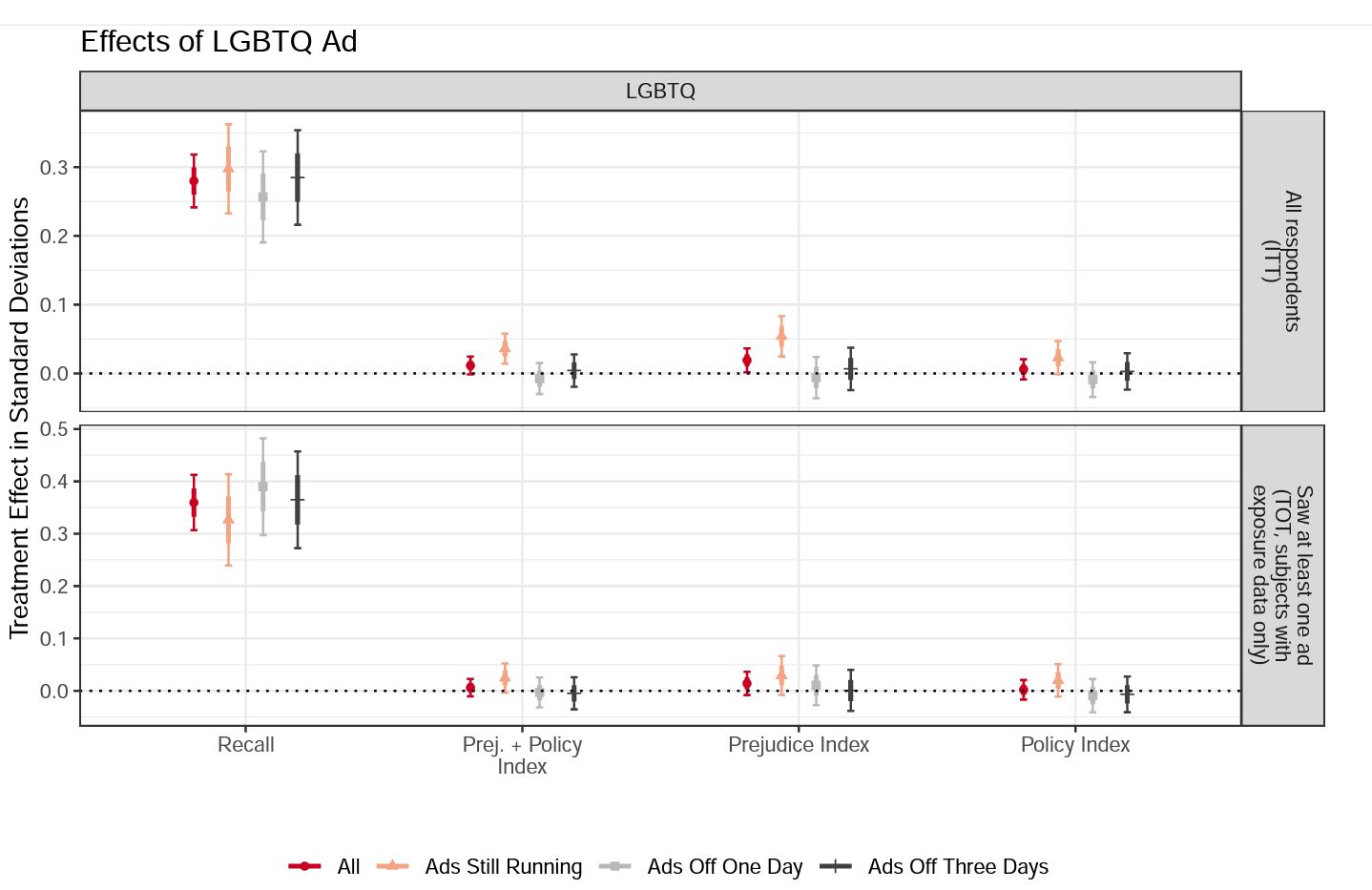Persuasion is an Uphill Battle
Jack Trout was a TV ad man who helped pioneer the concept of brand positioning who famously quipped, “If your assignment is to change people’s minds, don’t accept the assignment.”
Seems he knew what he was talking about. A huge study of TV effectiveness on changing people’s attitudes and beliefs about social issues found it is a waste of time and money. The study was a randomized experiment with 31,404 voters who saw three weeks worth of interest group ads on either immigration or transgender non-discrimination.
The participants completed surveys pre and post exposure measuring a variety of attitudes and beliefs on the respective topic.
The results for the LGBTQ ad reflect the same pattern seen for the immigration ad tests. The gist?
- People definitely saw the ads (1st set of bars – Recall)
- They retained facts shared in the ads
- The impact of the ads on attitudes and beliefs was incredibly small. If I was a 50 on a 0 to 100 scale measuring my attitudes, the ads moved me up (positively) to 50.5, on average.
- The tiny effect was very short lived, not even lasting a day after the ads stopped running.
- In a twist, people could recall the ads weeks after exposure. It’s just that they had negligible effect

Persuasion is tough but,
Not all media is the same. A similar experiment played out with Face to Face conversations (at residential houses) showing a marked, longer-lasting effect on attitude change.
Persuasion is tough but,
You make it much harder with this one-size-fits-nobody approach, which is precisely what this experiment did. The only chance you have to persuade is by starting where people are. This is why the F2F effort had more success. The conversation allowed for a back and forth dialogue. How to replicate this in TV or mail or other non-personal channels?
You need different ads tied to innate ways that people orient and think about the world. The ad needs to speak to them in a way that gets them to listen and process rather than tune out. One of the immigration ads was, per the creators (an advocacy org), designed to “use narrative persuasion paired with moral framing through American values of family, hard work and freedom to increase support for immigrants”.
Great, good idea if only that line of thinking were extended to realize that moral framing likely won’t work for everyone. We know Conscientious people (findable and targetable in every media channel) are much more likely to respond to this frame than Agreeable or Open people.
Persuasion is tough but you do it with at least one if not both hands tied behind your back if you have a one-size-fits-all approach. This random nth-ing of the world produces results that are often false negatives. The ads likely worked differently for different people.
But, all this thinking needs to be brought to the beginning of the assignment, assuming you don’t follow Jack Trout’s advice…
Kevin



Persuasion is tough. A client can have a tendency to be chronic offender, relying on what they have done in the past. The best advisors for positive change need to keep at it! and remember, no one idea works for all!!